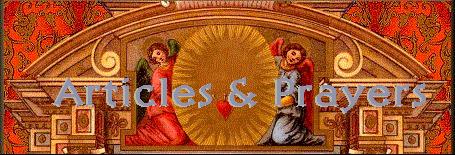
Sin: How do we see it today?

Sin: How do we see it today?
(The serious disciple correctly names sins and sinful attitudes only after overcoming three obstacles thrown up by postmodern culture.)
The First Obstacle
Our society has interpreted as social or political or economic malfunctions
many actions and attitudes that a serious disciple recognizes as sin.
Thus, when poverty-stricken parents totally neglect their children, they
are exonerated of moral guilt because they are caught in a socioeconomic
trap. College students’ promiscuity gets reduced to a statistic that
too many think expresses no values.
The Second Obstacle
Our society has made religion a private affair, expecting all of us
to discover our own truths and moral imperatives from within ourselves.
We do not recognize that the truth links us together and error divides
us. We do not recognize that each individual’s interior behavior
contributes to the righteousness or to the sinfulness of our life world.
Sin has become a matter between me and God.
The Third Obstacle
Our society has trivialized grave wrongdoing by changing its name.
We name grave evils by a nice name, which makes it all right to do then.
A woman “exercises” her power when she deliberately aborts the child in
her womb. Blatant lying becomes “politics” or “an advertising gambit.”
In this way, we can gaze undisturbed on the most serious sins and feel
that “Everybody does it,” or “It’s just the way our culture is.”
Note these things about coming to a sound sense of sin in the world and in my self:
Every sane person can see the results of sin. They are all around us: Children starve and old people live neglected. The super-rich live meaningless lives and are envied for it. Governments spew poisons over jungles and over the faces of whole towns. Men and women live wretched lives in ghettos, haunted by prostitution and murder.
But sin itself is a mystery. We cannot name it accurately ourselves. We need the Spirit of God to teach us.
For many decades, we thought of sin as breaking a rule or a law. We overemphasized that side of sin. Now, we think of sin as “rupturing the proper relationship between myself and my God, and even between myself and those whom God gives me to love.” Finally, we have come to understand that sin means a rupturing of my relationship to my own self - acting inauthentically and abusing myself.
We are keenly aware of the brokenness in each human person. Our deep sufferings rise from our infancy and our childhood. We are plagued by attitudes and hang-ups that we took into ourselves before we had the use of reason. As a consequence, we tend to try to change sin into non-sin. We make it superego, or the tapes that run in my head, or neuroticisms. We need to recognize two things:
We, who are neurotic or compelled, remain free at the very deepest level to take the responsibility for ourselves even while that freedom may be diminished or hard to use in some circumstances. And all of us who can gaze courageously at the disorder of human knowing and acting know that psychology’s insights can help us appreciate the horror of sin - in adult children of alcoholics, for instance, or in the brokenness of sexually abused adolescents.
We have come to recognize that we sin all along, and that we will live as sinful people until the day we die. This makes us sympathize with St. Paul’s cry that he was a wretched man. This reality is the abiding sorrow in human existence. It need not make us lead sad lives. We live with sorrow instead of living shallow lives; we live with joy even as we know sorrow. The reason we can achieve this lies in Christ’s victory, and God’s glory visible in our faith and trust.
God the Lord will not let us come to truly appreciate how sinful we are until we have let God teach us how deeply and faithfully He loves us.
Once, Christians distinguished between only serious and venial sins. We are coming to understand that we do better to distinguish between not only very slight sins and sins that cut us off from God, but also some sins that are in between. So we think of venial, serious, and deadly sins. We easily name the two extremes: We commit a venial sin when we let ourselves show real anger at a computer. We commit a deadly sin when we choose to live totally without God or the fellowship of the Church. The in-between we find harder to name: We commit a serious sin when we take a lot of alcohol at a party and then put our family into a car and drive it out onto a busy expressway.
In some significant measure, we do not attend enough to our serious sins.
A deliberate lie to a loving spouse.We do not recognize that these are serious matters, not the way a cancerous liver is serious, but the way an arthritic knee is serious, or a stomach ulcer, or 20/40 vision. These serious matters need correcting, and if we take the physical ones to doctors, to whom ought we take the spiritual ones?
Neglecting to help to poor, ever.
Slothfully refusing to learn more about our beliefs so that we can grow in faith.
Spreading ugly rumors about another person’s private life.